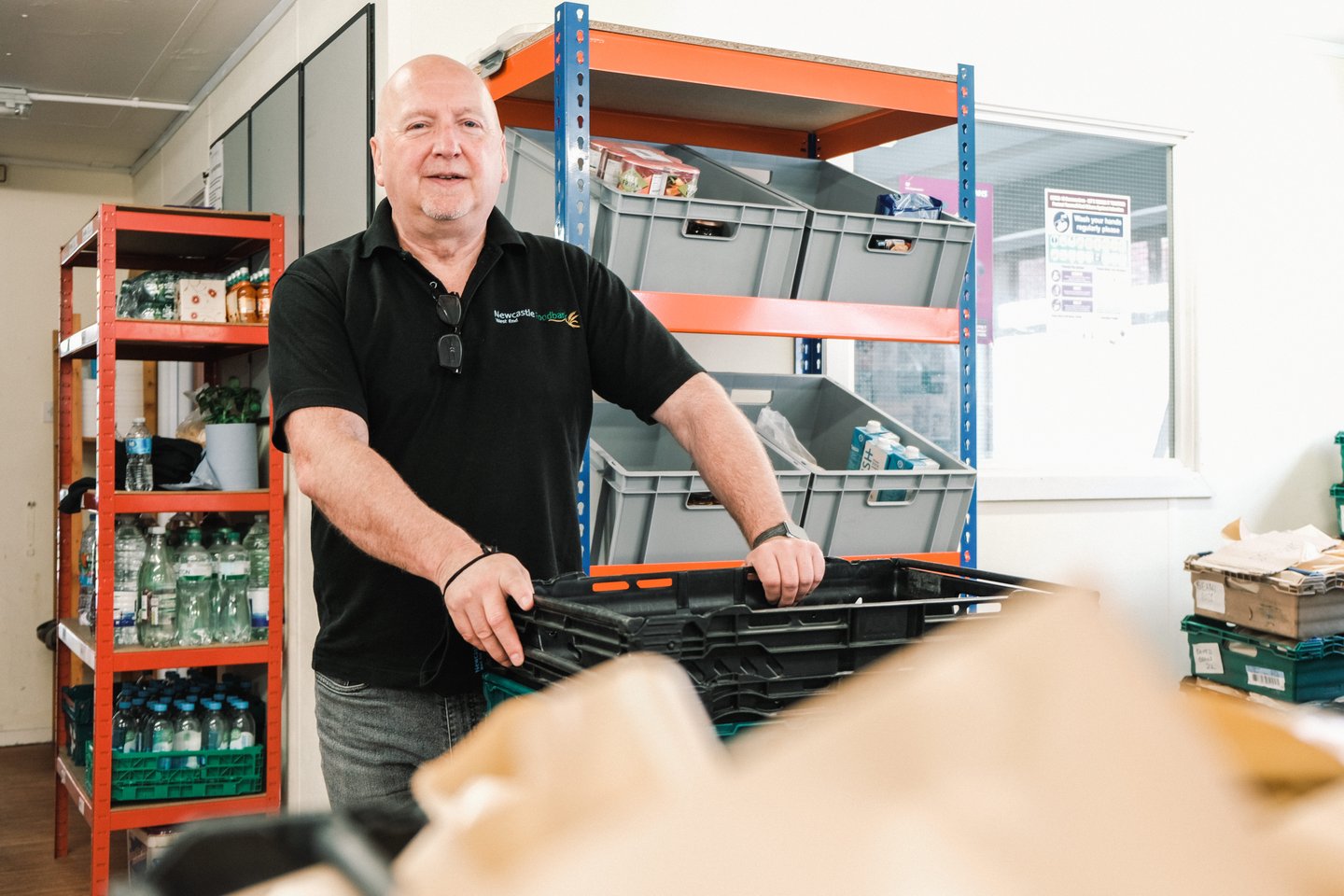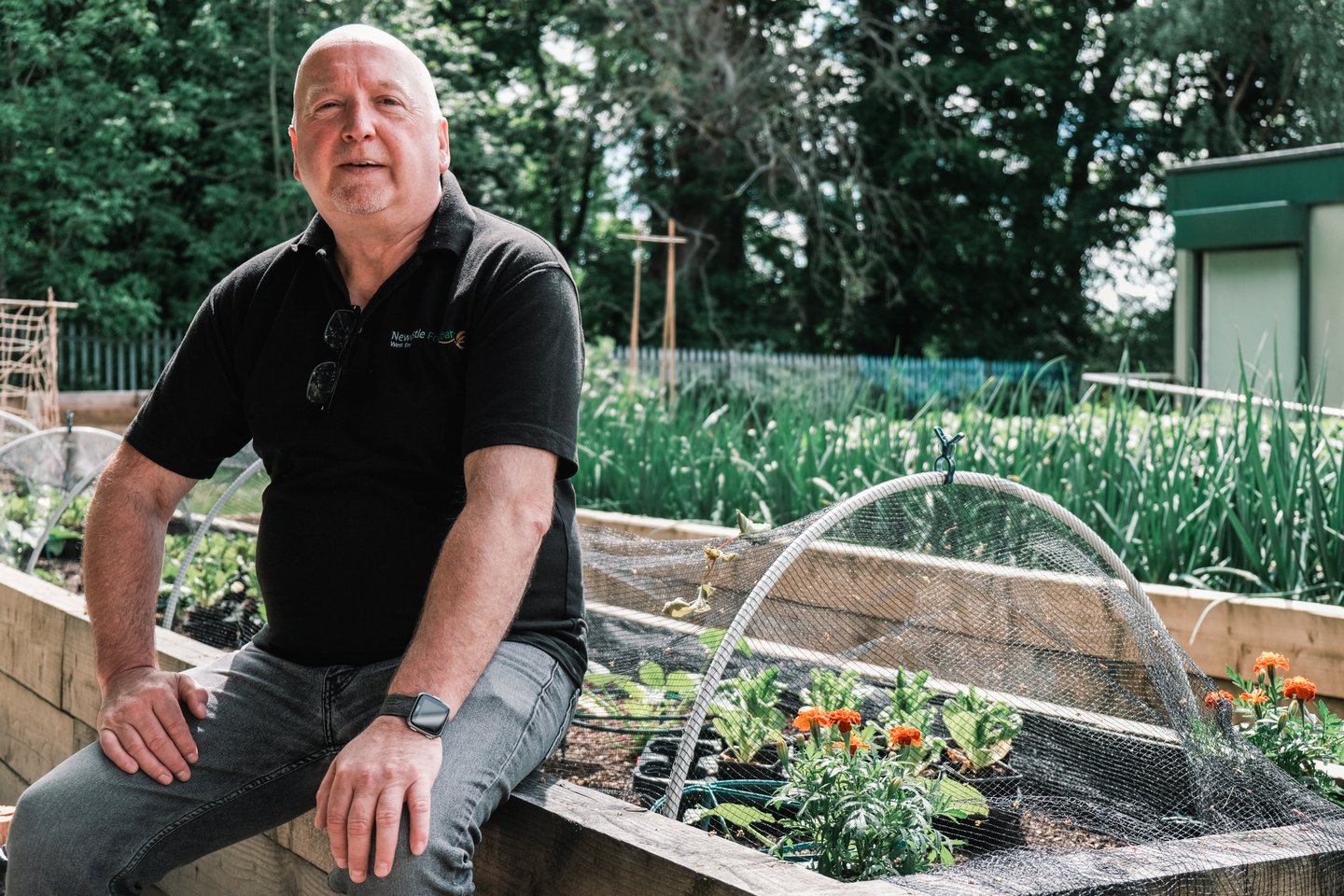West End Food Bank

The Newcastle West End FoodBank was formed in the belief that nobody in the city should go hungry. It provides three days of nutritionally balanced, emergency food parcels and supports people in crisis who are referred by other agencies. It is an independent charity which links to a nationwide network of food banks supported by the Trussell Trust. Their shared aims being the eradication of food insecurity and its debilitating effects on individuals and families.
Thanks to new investment from the North of Tyne Combined Authority, who have funded the National Innovation Centre for Data (NICD) to support regional businesses, NICD was able to work with the FoodBank to support the local community and carry out a project which demonstrates how organisations of all sizes can benefit from the careful management and analysis of data.
NICD is helping to shape our strategy, which is currently under review by the charity’s trustees. It’s informing our projects because we have better definitions of our client base and the trends and factors that have brought people to use our service.
The organisation
The Newcastle West End FoodBank was set up in 2013 by a small group of volunteers from the Church of the Venerable Bede to support those in the city who find themselves facing a personal crisis and unable to afford the food they need. It is one of the busiest food banks in the country and John McCorry says that between April 2020 and March 2021, it provided 19,137 food parcels which fed 52,950 people as beneficiaries.
The goal
Newcastle West End FoodBank subscribe to a Trussell Trust data system for food vouchers and wanted to gain greater insights from this data about food distribution across its centres. This information would help to identify that food was provided to those most in need and that the FoodBank could work seamlessly with other organisations supporting disadvantaged people in Newcastle upon Tyne. Its aim was to glean key insights that would allow it to plan its service more effectively into the future.
The results
A team of data scientists from NICD worked with the FoodBank to glean insights that are helping the charity understand:
- Why people are using food banks
- The impact of Covid-19 on the service
- Where the areas of greatest need are in Newcastle
- How the food bank can work effectively with other organisations

Supporting those in need
To feed people in crisis across the Newcastle city region, the FoodBank raised 307 tonnes of food between April 2020 and March 2021, to fulfil on average 1,500 emergency food parcels each month, says John. Thankfully, the FoodBank volunteers have responded to the increase in demand as have the public with their much-needed donations to FoodBank. The in-kind contribution of 307 tonnes of food used to support vulnerable sections of our community is an estimated £537,250 if valued at £1.75 per kilo. Given the numbers of people needing help as well as the volume of food required on the rise, the trustees decided to work with NICD to ensure the operation is focused and as efficient as possible.
John McCorry says: “The food and finances we have are donated in good faith by the public and we want to make sure that the people who are in hardship feel the benefit. We knew we had a lot of raw data and we wanted to use it to better understand the clients that are using our services, to see what their needs are and learn to adapt to better support them.”
A NICD team including data scientists Dr Jonathan Law, Stephen Dowsland, Graham Cole, Antonia Kontaratou, Louise Braithwaite, and others worked to analyse data from food vouchers given out to tens of thousands of people by around 150 agencies, ranging from the Citizens’ Advice Bureau to doctor’s surgeries, community centres and churches. They used the data to understand, for example, the kinds of people using the service, any change in the way it has been used during the Covid-19 pandemic, and what drives people to use the FoodBank.
The study was timely because it showed a rise of 49% in the number of vouchers fulfilled by the FoodBank in 2020 compared to the previous year. And NICD’s analysis showed that during the pandemic unemployment and low incomes had overtaken benefit changes as the primary driver for people to use the FoodBank.
West End FoodBank and the volunteers offer a lot in the region. It is really important that the National Innovation Centre for Data is involved in an initiative that aims to tackle problems related to social inequalities and deprivation.
Insights and Ideas
Louise explains: “The interesting thing for the FoodBank is that they have insight and ideas of what they could use the data for. Potentially, there are operational decisions that they could make with that information. We might need to consider how we analyse this data regularly to see how things are changing and there could be an opportunity to use the data for funding applications, for advocacy and talking about the work they are doing. Just the fact that they know there is more information there that they can use to help their organisation and the people who are using the FoodBank is helpful to them.”
Graham adds “while using the FoodBank is supposed to be an emergency stopgap measure, the data the team looked at showed that some users were going back quite regularly over the period and that was something that the West End FoodBank was keen to understand better.”
John McCorry adds: “The data has told us that our current food distribution centres are in the right locations but we’re also looking at where other areas of need exist. And we are looking at who else is supporting people in need and how we can best work with the council and its Active Inclusion Unit. So partly, the research was about helping to find our niche, so that we are not replicating or competing, in a sense, with other services but that our service is complementary to both the public sector and to other charities.”
North of Tyne Combined Authority’s investment in data science
The project was made possible due to a significant investment from the North of Tyne Combined Authority to ensure data skills are available to businesses and organisations in Newcastle, Northumberland and North Tyneside. The insights obtained show how investment in data skills can benefit our local community and work towards ensuring that everyone who needs help can receive it.
North of Tyne Mayor, Jamie Driscoll said: “Food poverty is very complex. We shouldn't live in a society where people are going hungry, but we do. Times were tough before but are a lot tougher now because of Covid. People have lost their jobs and businesses. But lots of people that use food banks are in work. Our project with NICD tries to find the patterns and causes. It tries to make sense of the complexities to help alleviate some of the poverty that people are experiencing right now. We need to close the gaps that people are falling through. Nationally, our country needs to change and make food poverty history."
Find out more
- Find out how the West End FoodBank is helping local people in crisis and how you could support their efforts.
- To find out how NICD can help you harness the power of your data, contact us at nicd@newcastle.ac.uk

Our Discovery workshop
Our Discovery workshops enable you to explore the potential of your data and understand the benefit you could gain before committing to a full-scale project.